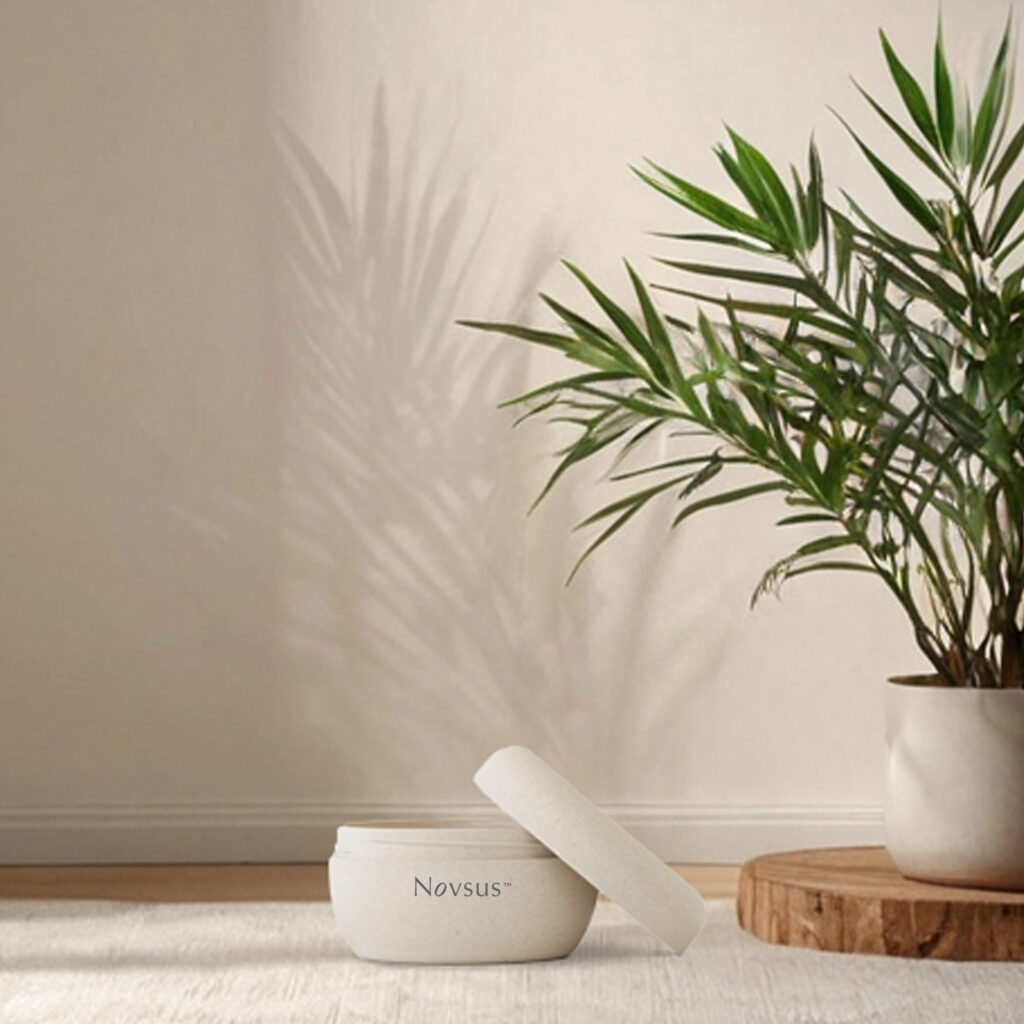Carbon footprint reduction: How Novsus helps cosmetic brands go greener
In a world where sustainability has become a priority, cosmetic brands are seeking innovative ways to reduce their environmental impact. One of the most promising solutions comes from Oryzite, a material made from rice husk that not only offers an eco-friendly alternative to traditional plastics but also significantly contributes to brands’ carbon footprint reduction. In this article, we will explore how the use of Oryzite in cosmetic packaging helps brands become greener and more environmentally responsible.
What is Oryzite?
Oryzite is an innovative material developed from rice husk, an abundant and often wasted agricultural byproduct. This material is biodegradable and can be used as a replacement for conventional plastics in a variety of applications, including cosmetic product packaging. The creation of Oryzite not only harnesses an underutilized resource but also offers significant environmental benefits compared to traditional packaging materials.
Reduction of agricultural waste
One of the main benefits of using Oryzite is the reduction of agricultural waste. Rice husk, which constitutes approximately 20% of the weight of harvested rice, is often considered a valueless agricultural residue. However, with Oryzite technology, this byproduct is transformed into a valuable and useful material. By reusing rice husk, large amounts of this waste are prevented from ending up in landfills or being burned, which can release polluting gases into the atmosphere.
Lower carbon emissions
The production process of Oryzite is significantly less carbon-intensive than the production of conventional plastics. Manufacturing plastics from petroleum involves extraction, refining, and processing of crude oil, all processes that emit large amounts of carbon dioxide (CO2). In contrast, Oryzite production utilizes rice husk, a material that already exists and does not require additional extraction. This not only reduces CO2 emissions but also decreases dependence on non-renewable resources.
Furthermore, the biodegradability of Oryzite means that at the end of its life cycle, this material naturally decomposes without releasing toxic substances or persisting in the environment like conventional plastics. This prevents the accumulation of plastic waste in oceans and landfills, contributing to a cleaner and healthier environment.
Benefits for cosmetic brands
Adopting packaging made with Oryzite offers multiple benefits for cosmetic brands, both in terms of sustainability and brand image:
-
- Improvement of Brand Image: Brands that use sustainable materials demonstrate a commitment to the environment, which can enhance their reputation and attract environmentally conscious consumers.
-
- Compliance with Environmental Regulations: As environmental regulations become stricter, the use of eco-friendly materials like Oryzite can help brands comply with regulations and avoid penalties.
-
- Innovation and Market Leadership: By adopting innovative technologies and materials, brands can position themselves as industry leaders, differentiating themselves from competitors and capturing the attention of consumers and media.
The adoption of Oryzite for cosmetic product packaging represents a significant step towards sustainability in the industry. By reducing the carbon footprint and harnessing agricultural waste, Novsus not only offers an eco-friendly solution but also helps brands become greener and more responsible. In a market where environmental awareness is increasingly important, using materials like Oryzite is not only an ethical decision but also a smart strategy for the future of the business.



